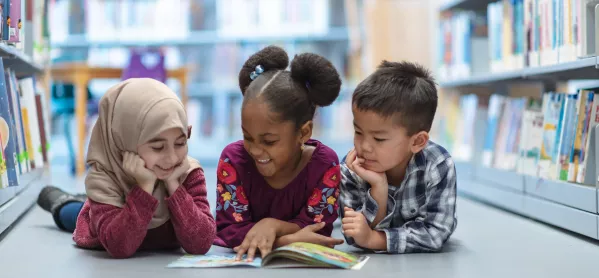Pupils should be given more access to books by black, Asian and/or minority ethnic (BAME) authors in English literature lessons to better reflect contemporary society, according to campaigners.
Book publisher Penguin Random House and race equality think tank the Runnymede Trust have joined forces to research a lack of representation on the GCSE curriculum.
News: More ‘engaging’ texts added to English literature GCSE
Diversity: Curriculum ‘must cover more than dead, white men’ - Bousted
Curriculum: ‘GCSE English felt like ritualised humiliation’
The organisations are concerned that books, authors, characters and stories taught in classrooms do not represent the rich diversity of society.
An analysis by the publisher and think tank found that 56 of 65 novels and plays on the GCSE English literature specifications across three major exam boards are written by white authors.
Diversity: Putting more BAME authors on the curriculum
Of the nine books written by BAME authors in the specifications from AQA, Edexcel and OCR, four were introduced just last year.
Only one GCSE English literature specification features a novel or play written by a black author.
The partnership - Lit in Colour - has been launched after the global Black Lives Matter protests inspired campaigns to diversify the curriculum in schools.
The research project will explore what is currently being taught in English lessons and it will gather views from teachers, parents and young people.
Tom Weldon, chief executive of Penguin Random House UK, said: “At its best, English literature offers young people a passport to see and understand the world through other’s eyes, inspire a lifelong love of reading and a fundamental sense of belonging.
“Access to a diverse and representative range of books, authors and characters is key - in classrooms, school libraries and at home.
“The reality is that our young people are still studying a mostly white, mostly male English literature curriculum: one which neither reflects contemporary society nor inspires a generation to read outside of their classes.”
Dr Halima Begum, director of the Runnymede Trust, said: “It is a sad reality that the dearth of ethnic minority authors, dramatists and poets means that our national curriculum fails to offer a true reflection of UK society, our bond to the Commonwealth and our migration story, which underpin the rich tapestry of our country’s diversity.”
Bernardine Evaristo, Booker Prize-winning author of Girl, Woman, Other, added: “This is an incredibly important, exciting and essential initiative that aims to redress an education system overwhelmingly delivered through a white filter that marginalises and excludes people of colour.”
Julie McCulloch, director of policy at the Association of School and College Leaders, said: “The GCSE English literature syllabus is ripe for review.
“It is important to recognise that children need access to the traditional works of the past and this is an important element of learning about literature.
“But they also need to read books which are directly relevant to their lives, and the choice of texts from BAME writers in the current specification is too limited.”
Paul Whiteman, general secretary of school leaders’ union the NAHT, said: “It is important for all children to have positive role models from a wide range of backgrounds and ethnicities.
“This helps to break down stereotypes and prejudice, and encourages children to broaden their horizons and ambitions and fulfil their educational potential.”
An AQA spokesman said: “We completely agree that students should learn about a diverse range of writers.
“We’re actually already reviewing equality, diversity and inclusion in our English literature GCSE and other qualifications to make sure they’re as representative as possible of modern Britain.”
A spokeswoman for Pearson Edexcel said: “We wholeheartedly agree it is vital that pupils get to study books by authors from different ethnic backgrounds, which is why we are continually working to adapt our specifications and ensure they are as diverse as possible.
“We remain committed to maximising diversity in curriculum and will continue to engage students and teachers through webinars, conferences and training to help us build a more inclusive education system.”





